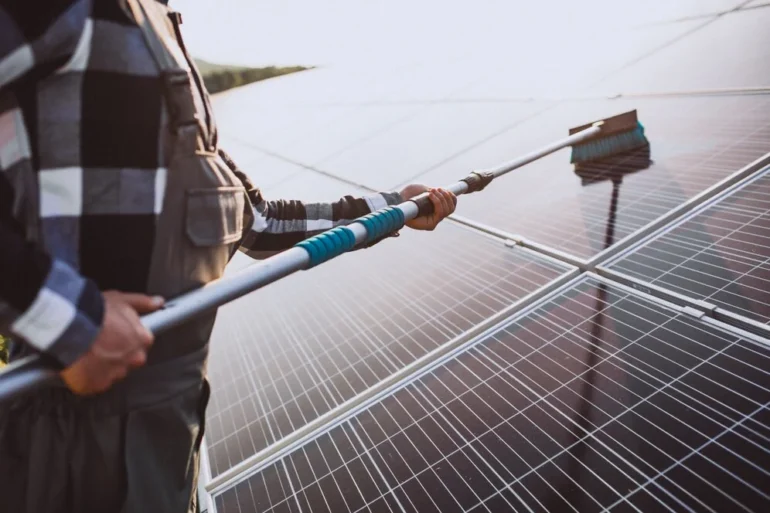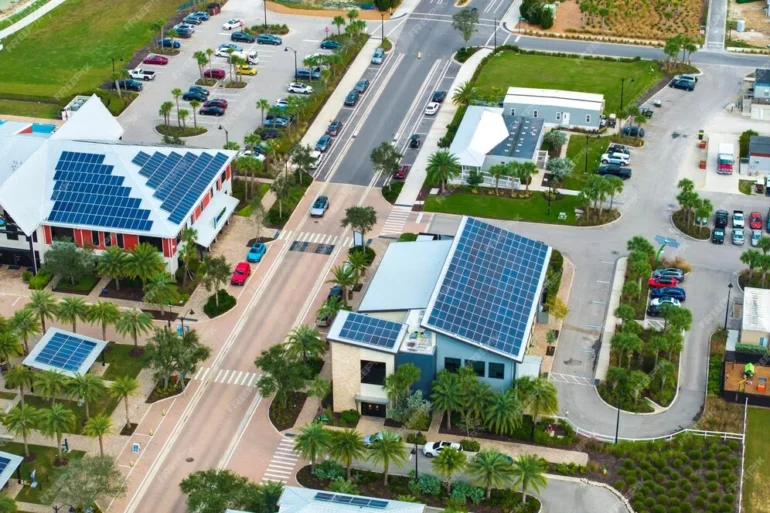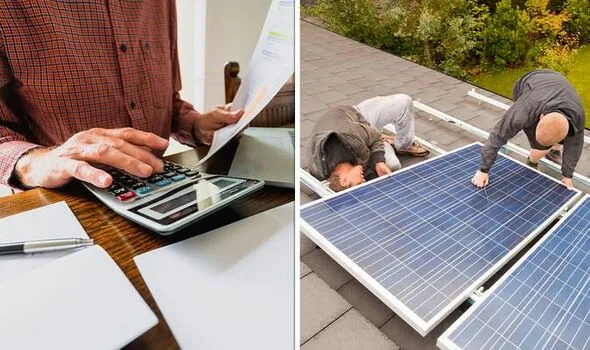Welcome to our comprehensive guide on finding the best residential solar panels for your home! As the demand for renewable energy solutions continues to rise, harnessing the power of the sun through solar panels has become an increasingly popular choice for homeowners. In this guide, we’ll explore everything you need to know about selecting the right solar panels to meet your energy needs efficiently and sustainably. From understanding key factors to consider when choosing solar panels to explore top brands and installation processes, we’re here to help you make informed decisions on your journey to a greener, more energy-efficient home.
Explanation of Residential Solar Panel Systems
Residential solar panel systems are comprised of photovoltaic (PV) panels installed on rooftops or ground-mounted arrays to harness sunlight and convert it into electricity. These systems consist of several components, including solar panels, inverters, racking or mounting hardware, and electrical wiring. The solar panels, typically made of silicon-based cells, capture sunlight and generate direct current (DC) electricity. The inverters then convert the DC electricity into alternating current (AC) electricity, which can be used to power household appliances and devices.
Benefits of Installing Solar Panels for Homeowners
There are numerous benefits to installing solar panels for homeowners, making them an attractive investment for reducing energy costs, increasing energy independence, and promoting environmental sustainability.
First and foremost, residential solar panels offer significant savings on electricity bills by allowing homeowners to generate their own renewable energy and reduce reliance on grid-supplied electricity. Over time, the savings from lower energy bills can offset the initial cost of purchasing and installing solar panels, resulting in long-term financial benefits.
Installing solar panels provides homeowners with greater energy independence and resilience against rising energy prices and utility rate hikes. By generating their own electricity from solar energy, homeowners can protect themselves from fluctuations in energy costs and reduce their dependence on fossil fuels.
From an environmental standpoint, the best residential solar panels contribute to reducing greenhouse gas emissions and combating climate change by harnessing clean, renewable energy from the sun. By choosing solar power over traditional energy sources, homeowners can reduce their carbon footprint and help preserve the planet for future generations.
Installing solar panels may increase the value of residential properties and make them more attractive to potential buyers. Studies have shown that homes with solar panels tend to sell faster and at a higher price than comparable homes without solar installations, making them a valuable investment in both financial and environmental terms.
Factors to Consider When Choosing Solar Panels
When considering the best residential solar panels for your home, several key factors should be taken into account to ensure optimal performance, longevity, and cost-effectiveness.
Efficiency Ratings and Performance
Efficiency ratings and performance are crucial considerations when selecting the best residential solar panels. Higher efficiency panels can generate more electricity per square foot of space, making them ideal for homes with limited roof space or shading issues. Look for panels with high-efficiency ratings, typically expressed as a percentage, to maximize energy production and optimize the return on your investment. Additionally, consider factors such as temperature coefficient and degradation rates to assess how well the panels will perform over time in varying weather conditions.
Durability and Warranty Coverage
Durability and warranty coverage are essential aspects of choosing the best residential solar panels. Look for panels made from high-quality materials and backed by comprehensive warranties to ensure long-term reliability and peace of mind. Pay attention to warranty terms for both product and performance guarantees, including coverage for defects, degradation, and power output over time. Panels with longer warranties and robust manufacturing standards are generally more reliable and can offer better protection against potential issues or malfunctions.
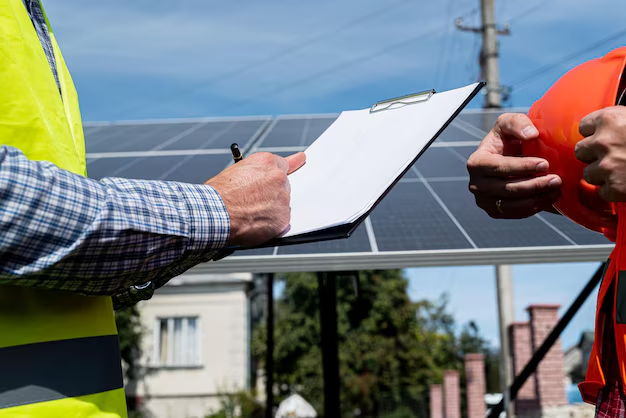 Cost and Return on Investment
Cost and Return on Investment
Cost and return on investment are significant factors to consider when evaluating the best residential solar panels. While upfront costs may vary depending on factors such as panel efficiency, brand reputation, and installation complexity, it’s essential to assess the overall value and potential savings over the lifetime of the system. Calculate the payback period and potential return on investment based on factors such as energy savings, tax incentives, and financing options to determine the most cost-effective solution for your budget and energy needs.
Compatibility with Your Home’s Energy Needs
Compatibility with your home’s energy needs is another critical consideration when choosing the best residential solar panels. Evaluate your household’s electricity consumption patterns, peak demand times, and future energy requirements to select panels that can meet or exceed your needs. Consider factors such as panel size, output capacity, and system scalability to ensure that the chosen panels can effectively offset your energy usage and provide sufficient power for your home’s appliances and devices. Additionally, consult with a qualified solar installer to assess site-specific factors such as roof orientation, shading, and structural considerations to ensure optimal performance and compatibility with your home’s energy needs.
Best Residential Solar Panels Brands
Choosing from the best residential solar panels brands can ensure quality, performance, and reliability for your home’s energy needs.
Leading Solar Panel Manufacturers
Leading solar panel manufacturers are known for their commitment to innovation, quality, and customer satisfaction. Companies such as SunPower, LG Solar, and Panasonic are recognized for their advanced technology, high-efficiency ratings, and durable construction. These manufacturers invest heavily in research and development to produce solar panels that deliver superior performance and longevity, making them top choices for residential installations.
Comparison of Features and Technologies
When comparing residential solar panels brands, it’s essential to consider the features and technologies offered by each manufacturer. Look for panels with advanced features such as PERC (Passivated Emitter Rear Cell) technology, half-cut cell design, and bifacial construction, which can enhance energy production and performance in various conditions. Additionally, consider factors such as panel efficiency, temperature coefficient, and degradation rates to assess how well the panels will perform over time and in different environments. Comparing the specifications and capabilities of different solar panels can help you make an informed decision and choose the best option for your home.
Reviews and Ratings
Reviews and ratings from customers and industry experts can provide valuable insights into the performance and reliability of residential solar panels brands. Websites such as SolarReviews and EnergySage offer comprehensive reviews, ratings, and testimonials from homeowners who have installed solar panels from various manufacturers. Pay attention to factors such as product satisfaction, installation experience, and post-sales support when evaluating reviews and ratings. Consider third-party certifications and endorsements, such as those from the Solar Energy Industries Association (SEIA) and the International Renewable Energy Agency (IRENA), which can attest to the quality and credibility of solar panel manufacturers. By researching reviews and ratings from trusted sources, you can gain confidence in your decision and select the best residential solar panels brands for your home.
Types of Solar Panels for Residential Use
Understanding the types of solar panels for residential use is essential for choosing the best option to meet your energy needs and preferences.
Monocrystalline vs. Polycrystalline Solar Panels
Monocrystalline and polycrystalline solar panels are two common types used in residential installations. Monocrystalline panels are made from single-crystal silicon and are known for their high efficiency and sleek appearance. They typically have higher upfront costs but offer better performance in limited space and low-light conditions. Polycrystalline panels are made from multiple silicon crystals and are more cost-effective but slightly less efficient than monocrystalline panels. They are suitable for larger installations with ample space and sunlight exposure. Understanding the differences between monocrystalline and polycrystalline panels can help homeowners choose the best option for their specific needs and budget.
Thin-Film Solar Panels
Thin-film solar panels are another type of solar technology used in residential applications. These panels are made from layers of semiconductor materials deposited onto a flexible substrate, such as glass, plastic, or metal. Thin-film panels are lightweight, durable, and flexible, making them ideal for curved or irregular surfaces and portable applications. While they typically have lower efficiency ratings compared to crystalline silicon panels, thin-film technology offers advantages in terms of cost-effectiveness, versatility, and performance in low-light conditions. Thin-film solar panels are suitable for a wide range of residential installations, including rooftops, facades, and off-grid systems.
Bifacial Solar Panels
Bifacial solar panels are designed to capture sunlight on both the front and back surfaces, increasing energy production and efficiency compared to traditional single-sided panels. These panels utilize advanced cell designs and transparent back sheets to capture reflected and diffuse sunlight, enhancing performance in various environments. Bifacial technology offers benefits such as higher energy yields, improved shading tolerance, and reduced degradation rates, making them an attractive option for residential installations seeking to maximize energy production and return on investment.
Emerging Technologies and Trends
In addition to traditional solar panel technologies, there are several emerging trends and innovations shaping the future of residential solar installations. These include advancements in perovskite solar cells, which offer higher efficiency and lower production costs compared to conventional silicon-based cells. Other emerging technologies include solar shingles, building-integrated photovoltaics (BIPV), and solar windows, which integrate solar cells directly into building materials for seamless integration and aesthetic appeal. As technology continues to evolve, homeowners can expect to see more options for integrating solar power into their homes in innovative and efficient ways. Staying informed about emerging technologies and trends can help homeowners make informed decisions and stay ahead of the curve when it comes to adopting the best residential solar panels for their homes.
Installation Process and Considerations
Understanding the installation process and considerations is crucial for ensuring the successful integration of the best residential solar panels into your home.
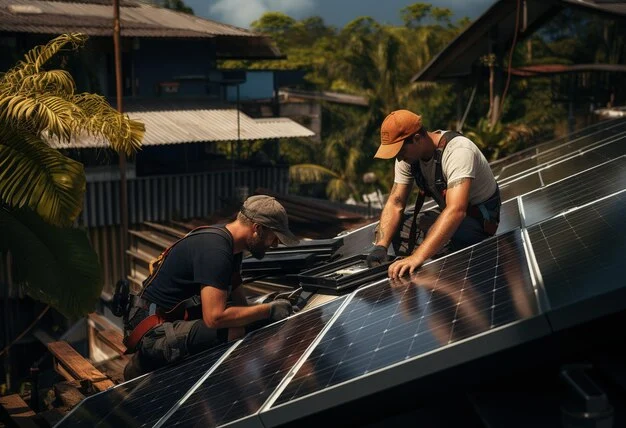 Hiring a Reputable Solar Installer
Hiring a Reputable Solar Installer
Hiring a reputable solar installer is the first step in the installation process. Look for experienced, licensed professionals with a track record of successful installations and satisfied customers. Research potential installers, read reviews, and ask for recommendations from friends, family, or neighbors who have installed solar panels. A reputable installer will conduct a thorough assessment of your home’s energy needs, provide customized recommendations, and guide you through the entire installation process from start to finish.
Site Assessment and Solar Panel Placement
Before installing solar panels, a comprehensive site assessment is conducted to evaluate factors such as roof orientation, tilt, shading, and structural integrity. The installer will determine the optimal location for solar panel placement to maximize sunlight exposure and energy production. This may involve considerations such as roof pitch, obstructions such as trees or buildings, and local weather patterns. By carefully assessing the site and solar panel placement, the installer can ensure optimal performance and efficiency for the residential solar panel system.
Permitting and Regulatory Requirements
Obtaining the necessary permits and complying with regulatory requirements are essential steps in the solar panel installation process. The installer will handle the permitting process on behalf of the homeowner, ensuring that all necessary approvals and inspections are obtained before proceeding with the installation. Permitting requirements may vary depending on location and jurisdiction, so it’s essential to work with a knowledgeable installer who understands local regulations and can navigate the permitting process efficiently. Compliance with building codes, zoning ordinances, and utility interconnection requirements is essential to ensure the safety, legality, and reliability of the residential solar panel system.
Maintenance and Upkeep of Solar Panel Systems
Once the solar panels are installed, regular maintenance and upkeep are necessary to ensure optimal performance and longevity. This includes cleaning the panels periodically to remove dirt, dust, and debris that can accumulate on the surface and reduce energy production. The installer may provide recommendations for maintenance tasks such as inspecting electrical connections, monitoring system performance, and troubleshooting any issues that may arise. Additionally, homeowners should be aware of warranty coverage and follow manufacturer recommendations for servicing and repairs. By staying proactive with maintenance and upkeep, homeowners can maximize the lifespan and efficiency of their residential solar panel systems, ensuring continued savings and sustainability for years to come.
Financing Options for Residential Solar Panels
Understanding the financing options for the best residential solar panels is crucial for making the best decision for your budget and energy needs.
Purchasing vs. Leasing Solar Panels
When considering financing options, homeowners can choose between purchasing and leasing solar panels. Purchasing allows homeowners to own the solar panels outright, providing long-term savings and increased home value. However, it requires an upfront investment that may be prohibitive for some. Leasing, on the other hand, allows homeowners to pay a monthly fee to use the solar panels without owning them. While leasing may require little to no upfront cost, it may result in lower savings and limited control over the system.
Government Incentives and Tax Credits
Government incentives and tax credits are available to offset the cost of purchasing and installing best residential solar panels. These incentives vary by location but may include federal tax credits, state rebates, and local incentives. The Federal Investment Tax Credit (ITC) allows homeowners to deduct a percentage of the cost of their solar panel system from their federal taxes, providing significant savings. Additionally, some states offer rebates or incentives for solar installations, further reducing the cost for homeowners.
Solar Financing Programs and Loans
Solar financing programs and loans provide homeowners with flexible options for financing their solar panel installations. These programs may include solar loans, which allow homeowners to borrow money to finance their solar installations and repay the loan over time with fixed monthly payments. Solar financing programs may also offer options such as solar leases or power purchase agreements (PPAs), which allow homeowners to pay for the electricity generated by the solar panels rather than owning the panels themselves. By exploring different financing options, homeowners can find the best solution to fit their budget and financial goals.
Calculating the Financial Benefits
Calculating the financial benefits of installing residential solar panels involves considering factors such as upfront costs, energy savings, tax incentives, and return on investment. Homeowners can use online calculators or consult with solar installers to estimate the cost and potential savings of installing solar panels based on their energy usage and location. By comparing the cost of purchasing and installing solar panels with the potential savings on energy bills and available incentives, homeowners can determine the financial viability of going solar and make an informed decision about the best financing option for their needs.
Tips for Maximizing the Performance
Maximizing the performance of residential solar panels is essential for optimizing energy production and maximizing savings over time.
Optimizing Energy Consumption Habits
One of the most effective ways to maximize the performance of solar panels is by optimizing energy consumption habits. This includes implementing energy-efficient practices such as using energy-efficient appliances, turning off lights and electronics when not in use, and adjusting thermostat settings to reduce heating and cooling costs. By minimizing energy waste and using electricity more efficiently, homeowners can maximize the amount of solar energy available for use and increase overall energy savings.
Monitoring System Performance and Efficiency
Regularly monitoring system performance and efficiency is key to ensuring that residential solar panels are operating at their full potential. Many solar panel systems come equipped with monitoring software that allows homeowners to track energy production, monitor system performance in real time, and identify any issues or inefficiencies that may arise. By regularly reviewing performance data and addressing any problems promptly, homeowners can ensure that their solar panels are performing optimally and maximizing energy production.
Cleaning and Maintaining Solar Panels Regularly
Cleaning and maintaining solar panels regularly is essential for maximizing performance and longevity. Over time, dust, dirt, pollen, and other debris can accumulate on the surface of solar panels, reducing energy production and efficiency. Regular cleaning with a soft brush or sponge and mild detergent can help remove dirt and debris and restore optimal performance. Additionally, homeowners should inspect solar panels periodically for signs of damage or wear and tear, such as cracks, scratches, or loose connections, and address any issues promptly to prevent further damage and ensure continued performance.
 Upgrading and Expanding Solar Panel Systems
Upgrading and Expanding Solar Panel Systems
Another way to maximize the performance of residential solar panels is by upgrading and expanding the system as needed. As technology advances and energy needs change, homeowners may consider upgrading to more efficient panels or expanding their existing system to generate additional power. By working with a qualified solar installer, homeowners can assess their energy needs, evaluate available options for upgrades and expansions, and make informed decisions to maximize the performance and efficiency of their solar panel systems. Upgrading and expanding solar panel systems can help homeowners take full advantage of available sunlight and maximize energy savings for years to come.
Conclusion
Maximizing the performance of residential solar panels is essential for homeowners looking to harness the full potential of solar energy and maximize their energy savings. By implementing energy-efficient practices, monitoring system performance, regularly cleaning and maintaining solar panels, and considering upgrades and expansions as needed, homeowners can ensure that their solar panel systems operate at peak efficiency for years to come. With the increasing demand for renewable energy solutions and the availability of incentives and financing options, now is an ideal time for homeowners to explore the benefits of installing the best residential solar panels. By taking proactive steps to optimize performance and maximize savings, homeowners can enjoy the environmental and financial benefits of solar energy while reducing their dependence on traditional energy sources.
FAQs
How often should I clean my residential solar panels?
It’s recommended to clean solar panels at least once or twice a year, or more frequently if there’s significant dirt or debris accumulation.
Can I upgrade my existing solar panel system to increase performance?
Yes, homeowners can upgrade their solar panel systems by adding more panels, installing more efficient panels, or incorporating energy storage solutions.
What happens if my solar panels produce more energy than I use?
Excess energy generated by solar panels can be fed back into the grid for credits or stored in batteries for later use.

